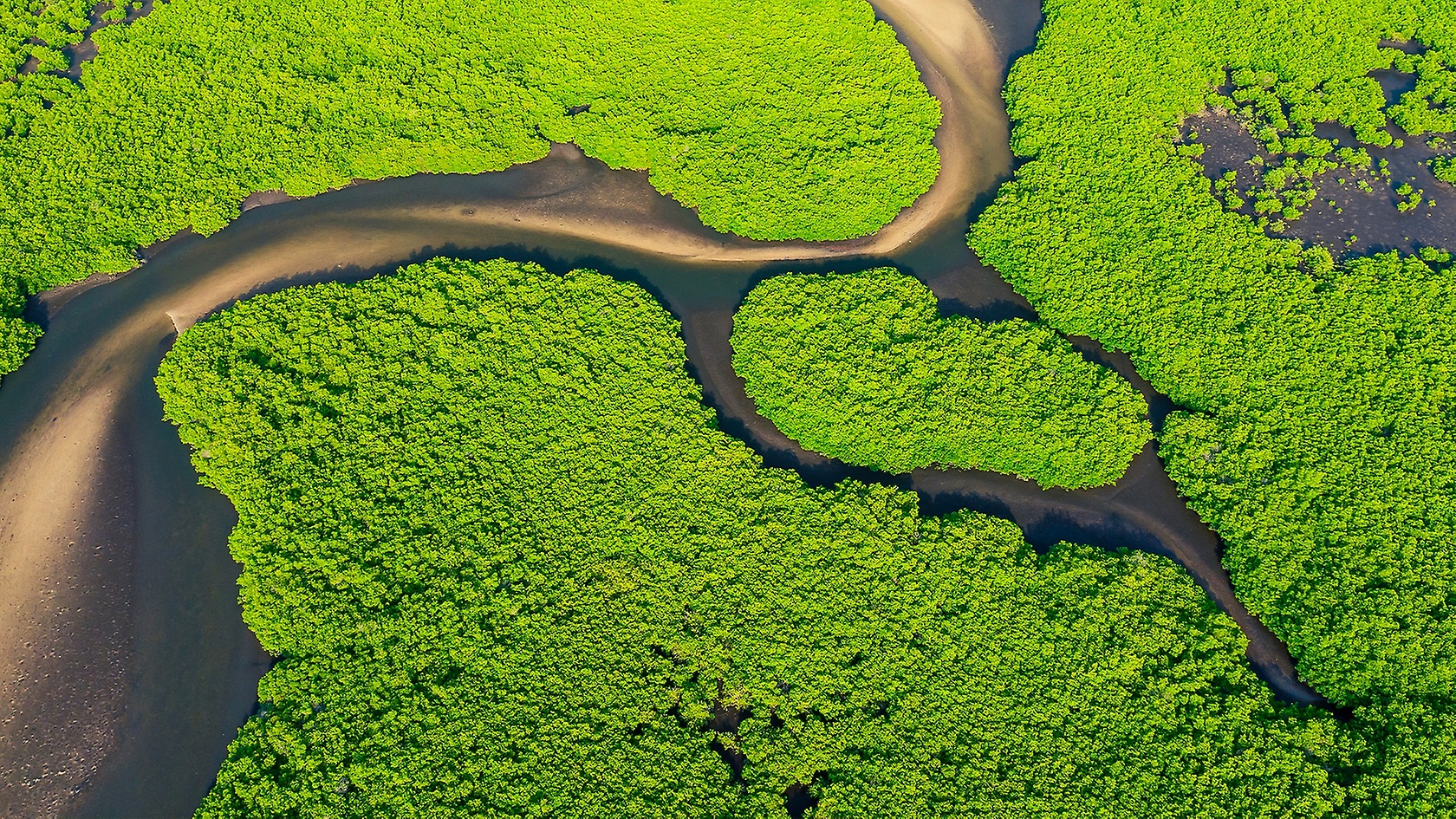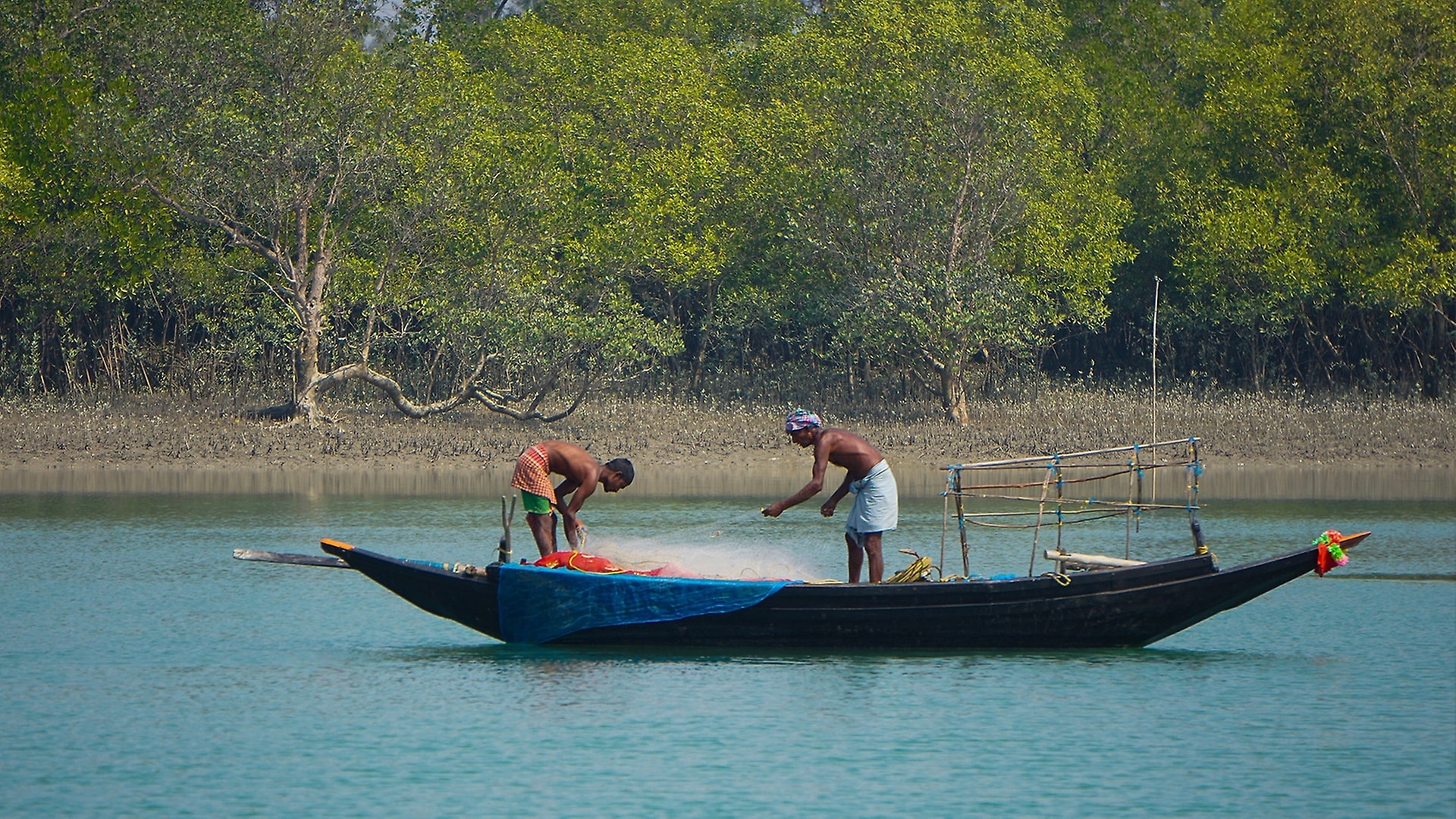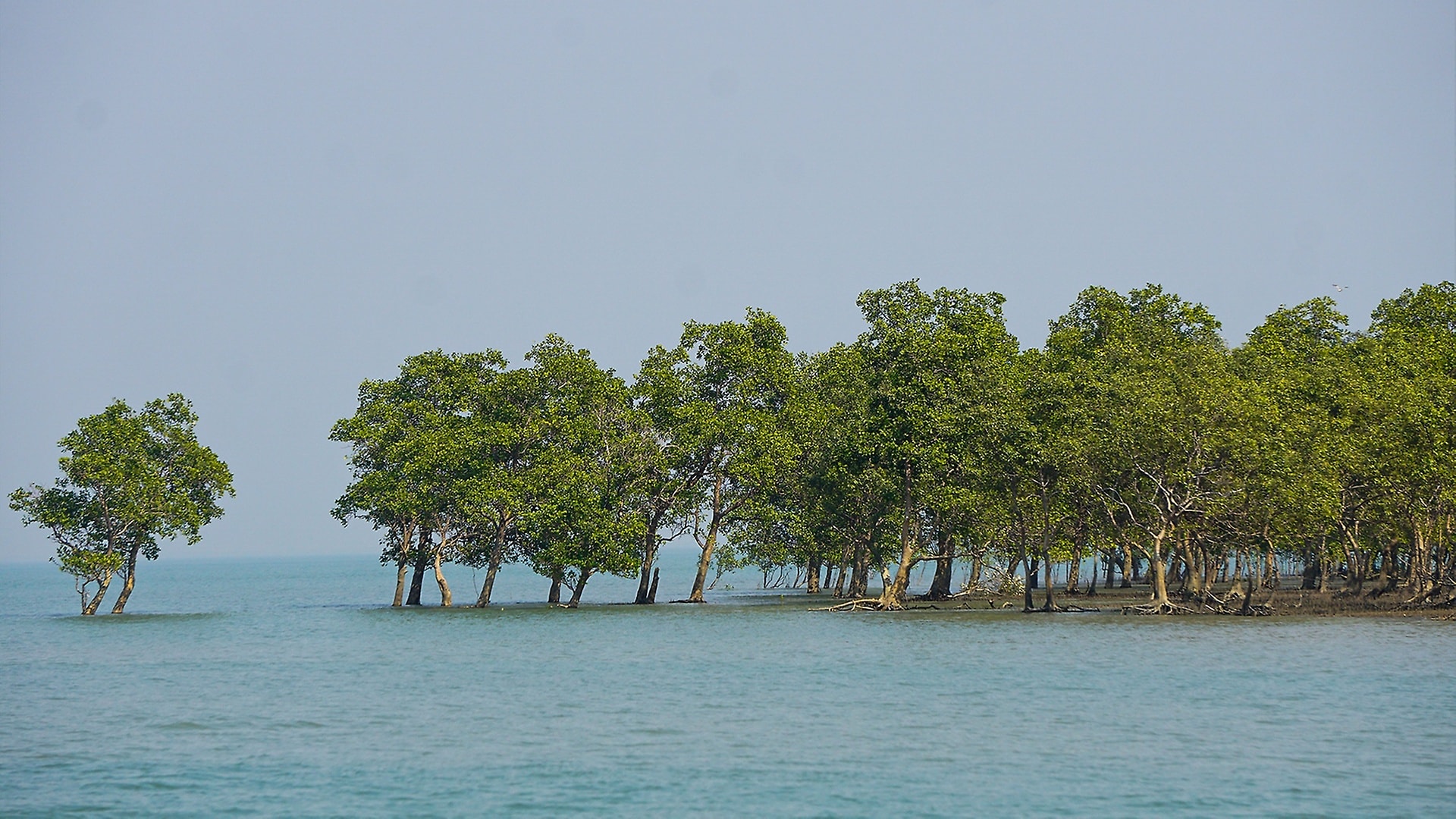The small farmers in the region teach each other the practical methods on the farms – a knowledge transfer that is an essential part of an overall strategy to reforest destroyed coastal strips with mangroves and thus permanently stabilise them in harmony with the shrimp ponds.
The GNF places special emphasis on creating alternative income opportunities for the local population. Diversification increases their economic resilience. A good example of this is the promotion of the production and marketing of high-quality mangrove honey. The bees find ideal habitats for their hives in the tree trunks, and local collectors, the so-called Mowals, collect this honey and market it together through a local cooperative. The GNF has supported this cooperative in establishing a modern production and distribution infrastructure. This not only contributes to securing the livelihood of the local population, but also creates identification with the issue of mangrove conservation in the local markets.
Finally, the empowerment of women's groups also plays a central role in the ecological restoration of the mangrove forests in the project region: Within the framework of a so-called mangrove steward programme, the GNF supports women in developing additional income opportunities such as mushroom or poultry farming. This provides them with additional income and, in the long term, more rights of co-determination in village decision-making – and at the same time protects the precious mangrove ecosystem.
,xPosition=0,yPosition=0.5)


,xPosition=0.5,yPosition=0)